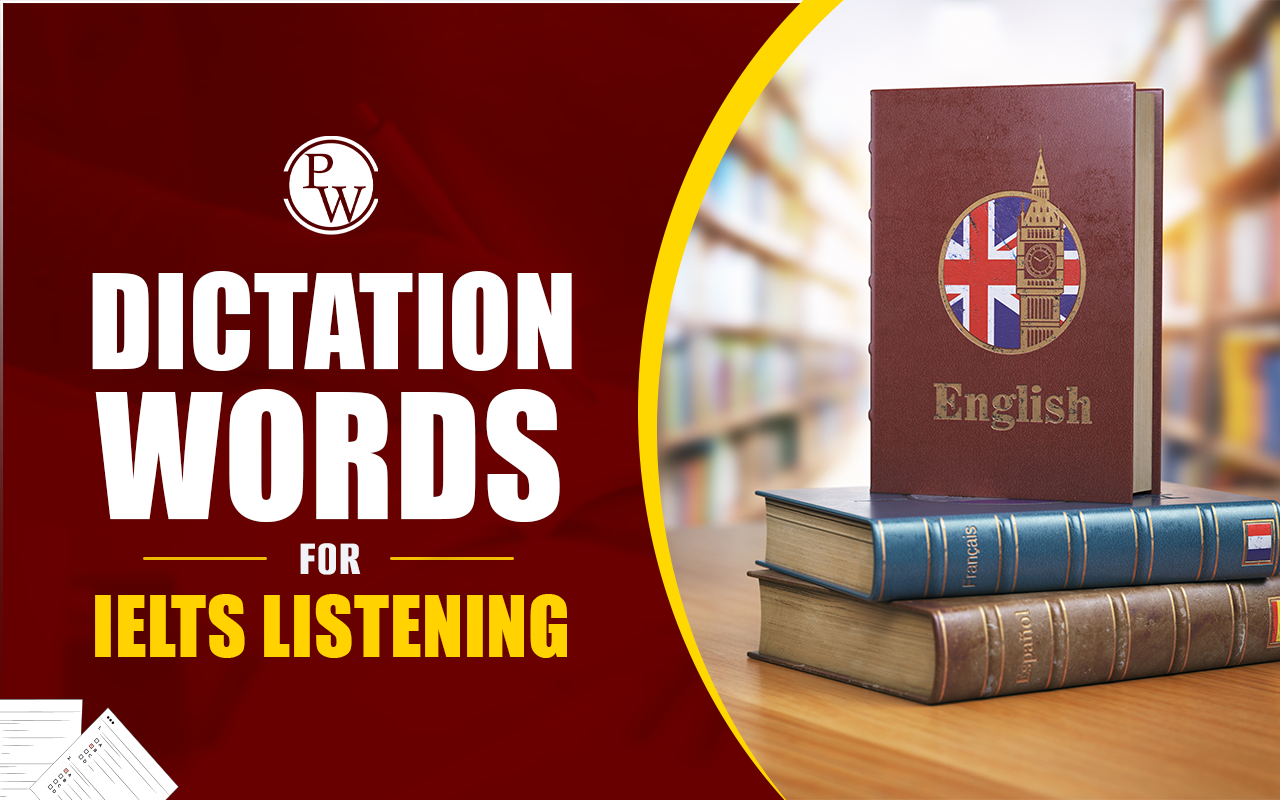
Why Every IELTS Student Should Study Grammar: Achieving a high band score in the International English Language Testing System (IELTS) requires a comprehensive understanding of all aspects of the English language. Among the essential components, grammar plays a pivotal role in determining your performance across all four sections of the test—Listening, Reading, Writing, and Speaking.
IELTS Writing Band Descriptors
While vocabulary and fluency often get the spotlight, grammar serves as the backbone of effective communication. This article explains why every IELTS student should study grammar, its significance, and practical ways to improve grammar for better IELTS results.Why Every IELTS Student Should Study Grammar?
Grammar is the structural framework of any language. In IELTS, it is assessed directly in the Writing and Speaking sections, but its impact is equally crucial in Listening and Reading. Let’s break it down:1. Writing Section
- Grammar accuracy contributes significantly to your Task Achievement, Coherence, and Cohesion scores.
- Correct use of tenses, articles, and sentence structures makes your essay or report more understandable and logical.
2. Speaking Section
- Proper grammar is key to delivering clear and coherent responses.
- Incorrect sentence structures can affect fluency and coherence, leading to a lower band score.
3. Reading Section
- Understanding complex sentence structures is vital for answering comprehension-based questions.
- Questions often test your ability to identify grammar-based nuances such as pronoun references and subject-verb agreement.
4. Listening Section
- Grammar helps you accurately interpret spoken content.
- Missing grammatical markers, such as verb tense or plural forms, can lead to incorrect answers.
Key Grammar Concepts Every IELTS Student Must Master
To excel in IELTS, students must focus on specific grammar rules and concepts that are frequently tested.| Grammar Concept | Importance in IELTS | Example |
|---|---|---|
| Tenses | Helps in accurately expressing time in Writing and Speaking. | “I have lived here for five years.” |
| Articles (a, an, the) | Essential for clarity and specificity in both Writing and Speaking. | “The book on the table is mine.” |
| Subject-Verb Agreement | Ensures grammatical correctness in sentences, especially in Listening and Writing. | “She writes well” vs. “She write well.” |
| Complex Sentences | Adds depth and variety to your Writing and Speaking, which increases your score for Grammatical Range and Accuracy. | “Although it was raining, we decided to go out.” |
| Passive Voice | Often required in IELTS Writing Task 1 (Academic) or Task 2. | “The report was written by the manager.” |
| Prepositions | Essential for describing places, directions, and time in Speaking and Writing. | “He arrived at 6 PM.” |
| Modal Verbs | Helps in expressing possibilities, abilities, or permissions, especially in Speaking and Writing. | “You should consider this option.” |
Benefits of Studying Grammar for IELTS
Grammar is the foundation of effective communication, and its importance in the IELTS exam cannot be overstated. From constructing coherent sentences to expressing ideas with clarity, a solid understanding of grammar is essential for excelling in all four sections—Listening, Reading, Writing, and Speaking.1. Improves Clarity and Precision
Grammar ensures your sentences are clear and easy to understand. Misusing grammar can lead to confusion, which affects your score in Writing and Speaking.2. Enhances Grammatical Range and Accuracy
The IELTS scoring criteria specifically assess your ability to use a wide range of grammatical structures accurately.3. Strengthens Comprehension
Grammar knowledge is essential for understanding long and complex sentences in the Reading and Listening sections.4. Boosts Confidence in Speaking
When your grammar is strong, you naturally feel more confident speaking fluently without worrying about errors.5. Reduces Penalty for Errors
Frequent grammatical mistakes can result in lower band scores. By mastering grammar, you can minimize such penalties.| IELTS Exam Important Links | |
|---|---|
| IELTS Reading Band Score | IELTS Listening Band Score |
| IELTS Speaking Band Score | IELTS Writing Band Score |
Common Grammar Mistakes to Avoid in IELTS Exam
Mastering grammar is crucial for achieving a high score in the IELTS exam, but even minor mistakes can impact your performance. Identifying and avoiding common grammar errors can make a significant difference in your overall score, especially in the Writing and Speaking sections. Understanding these pitfalls is the first step toward presenting clear, accurate, and effective communication.| Mistake | Explanation | Corrected Example |
|---|---|---|
| Incorrect verb tense usage | Using the wrong tense affects clarity and coherence. | Incorrect: “I will visited Paris.” Correct: “I visited Paris.” |
| Article omission | Missing "a," "an," or "the" where necessary. | Incorrect: “I saw movie.” Correct: “I saw a movie.” |
| Lack of subject-verb agreement | Subjects and verbs must agree in number and person. | Incorrect: “He don’t know.” Correct: “He doesn’t know.” |
| Run-on sentences | Combining multiple ideas without proper punctuation or conjunctions. | Incorrect: “I went to the store it was closed.” Correct: “I went to the store, but it was closed.” |
| Incorrect use of prepositions | Misplacing prepositions or using the wrong one. | Incorrect: “He is good in English.” Correct: “He is good at English.” |
How to Improve Grammar for IELTS
Improving grammar takes consistent effort, practice, and the right resources. Here are practical steps to enhance your grammar:1. Identify Your Weak Areas
- Take a diagnostic test to pinpoint your grammar mistakes.
- Focus on specific areas such as tenses, articles, or sentence structures.
2. Practice Regularly
- Dedicate time daily to practice grammar exercises.
- Use IELTS-specific resources like grammar workbooks and practice tests.
3. Learn Through Context
- Study grammar in context by reading articles, listening to podcasts, and analyzing sentence structures.
- Observe how grammar rules are applied in real-life examples.
4. Write and Speak More
- Practice writing essays and reports for IELTS Writing Tasks 1 and 2.
- Record yourself speaking and review grammatical accuracy.
5. Use Online Tools and Resources
- Leverage apps like Grammarly or online resources for instant grammar feedback.
- Websites like Cambridge English and BBC Learning English provide excellent grammar lessons.
Sample Study Plan to Improve Grammar for IELTS
Grammar plays an important role in real-life applications of the IELTS exam, enabling clear communication across all four sections—Listening, Reading, Writing, and Speaking. A strong grasp of grammar not only helps you express ideas effectively but also ensures accuracy and coherence, which are essential for achieving a high score.| Week | Focus Area | Activities |
|---|---|---|
| Week 1 | Tenses and Sentence Structures | Study rules, complete exercises, and write short paragraphs using various tenses. |
| Week 2 | Articles, Prepositions, and Subject-Verb Agreement | Practice grammar exercises and identify errors in mock tests. |
| Week 3 | Complex Sentences, Passive Voice, and Modal Verbs | Write essays focusing on complex sentence structures. Practice Speaking Task questions. |
Real-Life Applications of Grammar in IELTS
Grammar plays an important role in real-life applications of the IELTS exam, enabling clear communication across all four sections—Listening, Reading, Writing, and Speaking. A strong grasp of grammar not only helps you express ideas effectively but also ensures accuracy and coherence, which are essential for achieving a high score. Understanding its practical use can significantly enhance your test performance and everyday English proficiency.1. Writing Task 2
- Using complex sentences: "Although many people believe in free healthcare, others argue it is unsustainable."
- Proper tense usage: "The government has implemented new policies to address this issue."
2. Speaking Part 3
- Expressing opinions: "I think public transport should be improved because it reduces pollution."
- Using modal verbs: "People might use it more if it were more affordable."
3. Listening Section
- Identifying details: "The speaker said the meeting was scheduled for next Friday."
4. Reading Section
- Understanding complex text: "The report, which was published in 2020, highlights the importance of renewable energy."
Benefits of Grammar Beyond IELTS
Mastering grammar not only helps in IELTS but also enhances your overall English proficiency. It is particularly useful in:- Professional communication (emails, reports, presentations).
- Academic success in English-speaking environments.
- Social interactions with native speakers.
| IELTS Exam Important Links | ||
|---|---|---|
| IELTS Syllabus | IELTS Band Score | IELTS Exam Dates |
| IELTS Exam Fees | IELTS Exam Pattern | IELTS Score Validity |
PW IELTS Prep
PW IELTS provides online coaching to help students prepare for the test using a disciplined approach. PW provides IELTS Coaching for both Academic and General Training. To get a band score of 8 or above on the IELTS test, students must participate in PW's IELTS coaching program. Physics Wallah provides great online education for the IELTS to a variety of students. This course has been designed by highly qualified faculty members to help students prepare for the IELTS test.| IELTS Exam Other Related Links | |
| IELTS Exam | IELTS Academic Vs General |
| IELTS Registration | IELTS Eligibility Criteria |
| IELTS Mock Test | IDP IELTS Test Centers |
| IELTS Cut Off | IDP IELTS Slot Booking |
Why Every IELTS Student Should Study Grammar FAQs
Q1. Why is grammar important for the IELTS exam?
Ans. Grammar is crucial for achieving clarity and accuracy in writing and speaking. It impacts your scores in the Writing and Speaking sections, as grammatical range and accuracy are key assessment criteria.
Q2. How does studying grammar improve IELTS Writing scores?
Ans. Strong grammar helps you create coherent and error-free essays. It ensures proper sentence structure, correct tenses, and logical transitions, all of which are vital for a high band score.
Q3. Can weak grammar affect my IELTS Speaking score?
Ans. Yes, weak grammar can lead to miscommunication and lower your Speaking score. Using correct grammar enhances fluency and enables you to express ideas more effectively.
Q4. Which grammar topics should I focus on for IELTS?
Ans. Key topics include verb tenses, subject-verb agreement, prepositions, articles, complex sentence structures, and conditionals. These are frequently tested in both Writing and Speaking sections.
Q5. Does grammar matter in the Reading and Listening sections?
Ans. While grammar isn't directly tested in Reading and Listening, understanding sentence structures can help you interpret passages and audio more accurately.
Talk to a counsellorHave doubts? Our support team will be happy to assist you!

Check out these Related Articles
Free Learning Resources
PW Books
Notes (Class 10-12)
PW Study Materials
Notes (Class 6-9)
Ncert Solutions
Govt Exams
Class 6th to 12th Online Courses
Govt Job Exams Courses
UPSC Coaching
Defence Exam Coaching
Gate Exam Coaching
Other Exams
Know about Physics Wallah
Physics Wallah is an Indian edtech platform that provides accessible & comprehensive learning experiences to students from Class 6th to postgraduate level. We also provide extensive NCERT solutions, sample paper, NEET, JEE Mains, BITSAT previous year papers & more such resources to students. Physics Wallah also caters to over 3.5 million registered students and over 78 lakh+ Youtube subscribers with 4.8 rating on its app.
We Stand Out because
We provide students with intensive courses with India’s qualified & experienced faculties & mentors. PW strives to make the learning experience comprehensive and accessible for students of all sections of society. We believe in empowering every single student who couldn't dream of a good career in engineering and medical field earlier.
Our Key Focus Areas
Physics Wallah's main focus is to make the learning experience as economical as possible for all students. With our affordable courses like Lakshya, Udaan and Arjuna and many others, we have been able to provide a platform for lakhs of aspirants. From providing Chemistry, Maths, Physics formula to giving e-books of eminent authors like RD Sharma, RS Aggarwal and Lakhmir Singh, PW focuses on every single student's need for preparation.
What Makes Us Different
Physics Wallah strives to develop a comprehensive pedagogical structure for students, where they get a state-of-the-art learning experience with study material and resources. Apart from catering students preparing for JEE Mains and NEET, PW also provides study material for each state board like Uttar Pradesh, Bihar, and others
Copyright © 2025 Physicswallah Limited All rights reserved.
Get App









